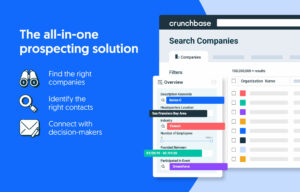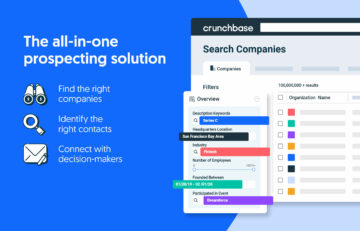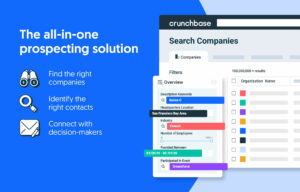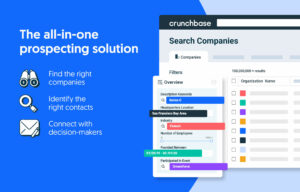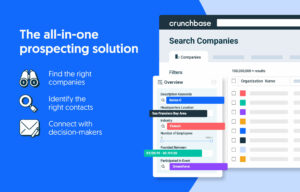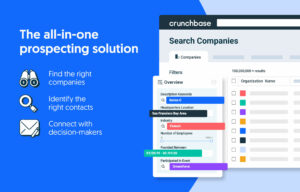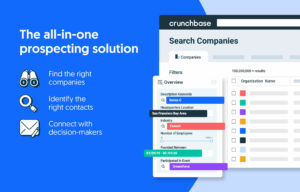Scaling operations is a hidden stone that founders often stumble upon, and that’s where AI can come into play.
Automating routine operations to free up resources for critical tasks and gaining insights to make data-driven decisions are just a few of the benefits of AI.
Generative AI takes it one step further with self-operating solutions redefining the role of a chief operating officer. As an acting chief operating officer, I witness those changes firsthand when helping our portfolio startups make the crucial hire of a COO.
How to hire a great COO
Some people think a startup doesn’t need a COO.
But I believe that having a COO is beneficial at the startup’s early stage. Scaling brings complexities, and founders often spend up to 40% of their working hours on tasks not generating income.
A COO can take those tasks off the CEO’s shoulders, allowing the latter to focus on building a great product. In other words, every Mark Zuckerberg wannabe needs a Sheryl Sandberg.


Most COOs’ expertise is in a specific business function. However, unlike corporations, startups need a COO to cover multiple responsibilities — from finance and marketing to supply chain management. As a company grows, the role remains cross-functional.
So if you’re hiring a COO, seek either those with deep industry expertise, or cross-functional roles, but with skills in these five areas:
1) Data and insights: Ask your candidates how they use analytics to derive insights for improving existing processes. A great candidate will have examples with measurable impacts.
2) AI literacy: You need someone able to identify operational bottlenecks and resolve them with AI. However, there’s no point in automating processes requiring human expertise, and a candidate who sees the difference between the two is a bonus.
3) People (and tools) management: A COO needs to manage both the “digital” and human workforces by creating a hybrid environment where tasks are distributed based on the resourcing efficiency.
4) Process-driven: Great teams are those that strike a balance between employees driven by performance, people or processes. Use The Strengths Deployment Inventory to identify what drives your candidate — and snap them up if they are “green.”
5) Strategic enterprise thinking: Enterprise thinking ensures that even if the candidate comes from a specific function, he or she will work toward driving the CEO’s vision across all operations of the company.
From COO to COPO
At my firm, Davidovs Venture Collective, managing a portfolio of 56 startups and making seven or eight new deals quarterly with a team of four required automating operations, so we did that using generative AI.
Fifty of our companies share monthly updates, and identifying the ways to assist them was a burden. We now use an in-house tool we’ve developed at DVC called Ask2Task to feed updates into OpenAI’s GPT-4, which converts them into tasks for our community members. We then only need to find an investor willing to help and connect them with a founder.
Since we make dozens of introductions daily, we are building Introduck — a GPT-4-based email assistant. It looks up profiles and writes intro requests for both parties.
Finally, startup data often comes as an email or PDF with pictures, graphs and charts. Alnalyst’s Deck Analytics, another in-house tool we developed, converts this data into text through Hugging Face’s LayoutLMv3, then feeds it into GPT-4 via Langchain. Each new deck automatically appears in the Airtable pipeline, triggering a MiniMemo one-pager. Your COO can also bring such efficiencies to the table.
In a nutshell, your ideal COO is a data-driven industry expert who strives for operational excellence and AI literacy, and is able to define the needs for automation and drive product development. That way, a COO of the future is a COPO (chief operating product officer), who ensures smooth operations across both real and virtual employees.
Marina Davidova is a co-founder and general partner of Davidovs Venture Collective, an early-stage VC investor backed by 99 engineers, founders and angel investors, and COO of Humanism.is, a platform for investments in future financial outputs of individuals.
Illustration: Dom Guzman
Search less. Close more.
Grow your revenue with all-in-one prospecting solutions powered by the leader in private-company data.


Stay up to date with recent funding rounds, acquisitions, and more with the Crunchbase Daily.
Are investors going all-in on big rounds again? Two weeks ago we marveled at the fact that eight rounds topped $100 million and amazingly, here we...
More than 169,524 workers at U.S.-based tech companies have been laid off in mass job cuts so far in 2023, per a Crunchbase News tally. See who the...
- SEO Powered Content & PR Distribution. Get Amplified Today.
- PlatoData.Network Vertical Generative Ai. Empower Yourself. Access Here.
- PlatoAiStream. Web3 Intelligence. Knowledge Amplified. Access Here.
- PlatoESG. Automotive / EVs, Carbon, CleanTech, Energy, Environment, Solar, Waste Management. Access Here.
- PlatoHealth. Biotech and Clinical Trials Intelligence. Access Here.
- ChartPrime. Elevate your Trading Game with ChartPrime. Access Here.
- BlockOffsets. Modernizing Environmental Offset Ownership. Access Here.
- Source: https://news.crunchbase.com/venture/startup-generative-ai-hiring-coo-davidova-davidos/
- :is
- :not
- :where
- $100 million
- $UP
- 2023
- 300
- a
- Able
- acquisitions
- across
- acting
- again
- ago
- AI
- All
- all-in-one
- Allowing
- also
- an
- analytics
- and
- Angel
- angel investors
- Another
- ARE
- areas
- AS
- ask
- assist
- Assistant
- At
- automatically
- automating
- Automation
- backed
- Balance
- based
- been
- believe
- beneficial
- between
- Big
- Bonus
- both
- both parties
- bring
- Brings
- Building
- burden
- business
- but
- by
- called
- CAN
- candidate
- candidates
- chain
- Changes
- Charts
- chief
- Chief Operating Officer
- Close
- Co-founder
- Collective
- come
- comes
- community
- Companies
- company
- complexities
- Connect
- coo
- Corporations
- cover
- Creating
- critical
- crucial
- CrunchBase
- cuts
- daily
- data
- data-driven
- Date
- Deals
- decisions
- deep
- define
- deployment
- developed
- Development
- DID
- difference
- distributed
- dozens
- drive
- driven
- drives
- driving
- DVC
- each
- Early
- early stage
- efficiencies
- efficiency
- either
- employees
- end
- Engineers
- ensures
- Enterprise
- Entrepreneur
- Environment
- Era
- Even
- Every
- examples
- Excellence
- existing
- expert
- expertise
- fact
- far
- few
- finance
- financial
- Find
- Firm
- five
- Focus
- For
- Forbes
- founder
- founders
- four
- Free
- from
- function
- funding
- funding rounds
- further
- future
- gaining
- General
- General Partner
- generating
- generative
- Generative AI
- going
- GP
- graphs
- great
- Grows
- Have
- having
- he
- help
- helping
- here
- Hidden
- hire
- Hiring
- How
- How To
- However
- HTTPS
- human
- Hybrid
- i
- ideal
- identify
- identifying
- if
- Impacts
- improving
- in
- In other
- Income
- individuals
- industry
- Industry Expert
- insights
- into
- introductions
- Investments
- investor
- Investors
- IT
- Job
- job cuts
- just
- leader
- less
- literacy
- LOOKS
- make
- Making
- manage
- management
- managing
- Marketing
- Mass
- max-width
- Members
- million
- monthly
- more
- multiple
- my
- Need
- needs
- New
- new deals
- news
- no
- now
- Nutshell
- of
- off
- Officer
- often
- on
- ONE
- only
- operating
- operational
- Operations
- or
- Other
- our
- parties
- partner
- People
- per
- performance
- Pictures
- pipeline
- platform
- plato
- Plato Data Intelligence
- PlatoData
- Play
- Point
- portfolio
- powered
- processes
- Product
- product development
- Profiles
- real
- recent
- Recent Funding
- Redefining
- remains
- requests
- required
- Resources
- responsibilities
- revenue
- Role
- roles
- rounds
- s
- scaling
- see
- Seek
- sees
- seven
- Share
- she
- skills
- smooth
- Snap
- So
- so Far
- Solutions
- Someone
- specific
- spend
- Stage
- startup
- Startups
- stay
- Step
- STONE
- Strategic
- strike
- strives
- such
- supply
- supply chain
- supply chain management
- table
- Take
- takes
- Tally
- tasks
- team
- teams
- tech
- tech companies
- text
- than
- that
- The
- The Future
- their
- Them
- then
- These
- they
- think
- Thinking
- this
- those
- Through
- to
- tool
- tools
- topped
- toward
- triggering
- two
- unlike
- Updates
- upon
- use
- using
- VC
- venture
- via
- Virtual
- vision
- was
- Way..
- ways
- we
- Weeks
- What
- when
- which
- WHO
- will
- willing
- with
- witness
- words
- Work
- workers
- working
- you
- Your
- zephyrnet

